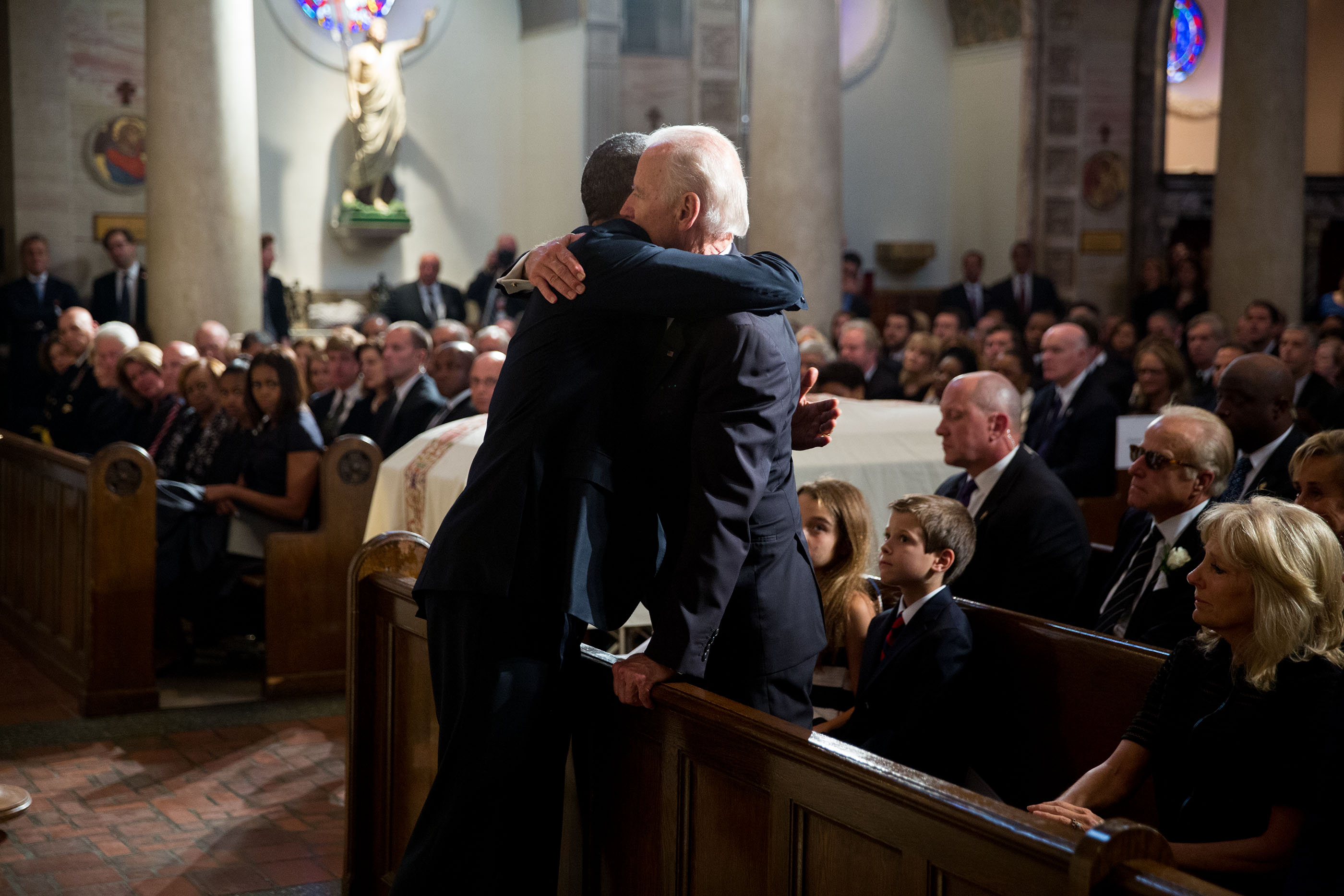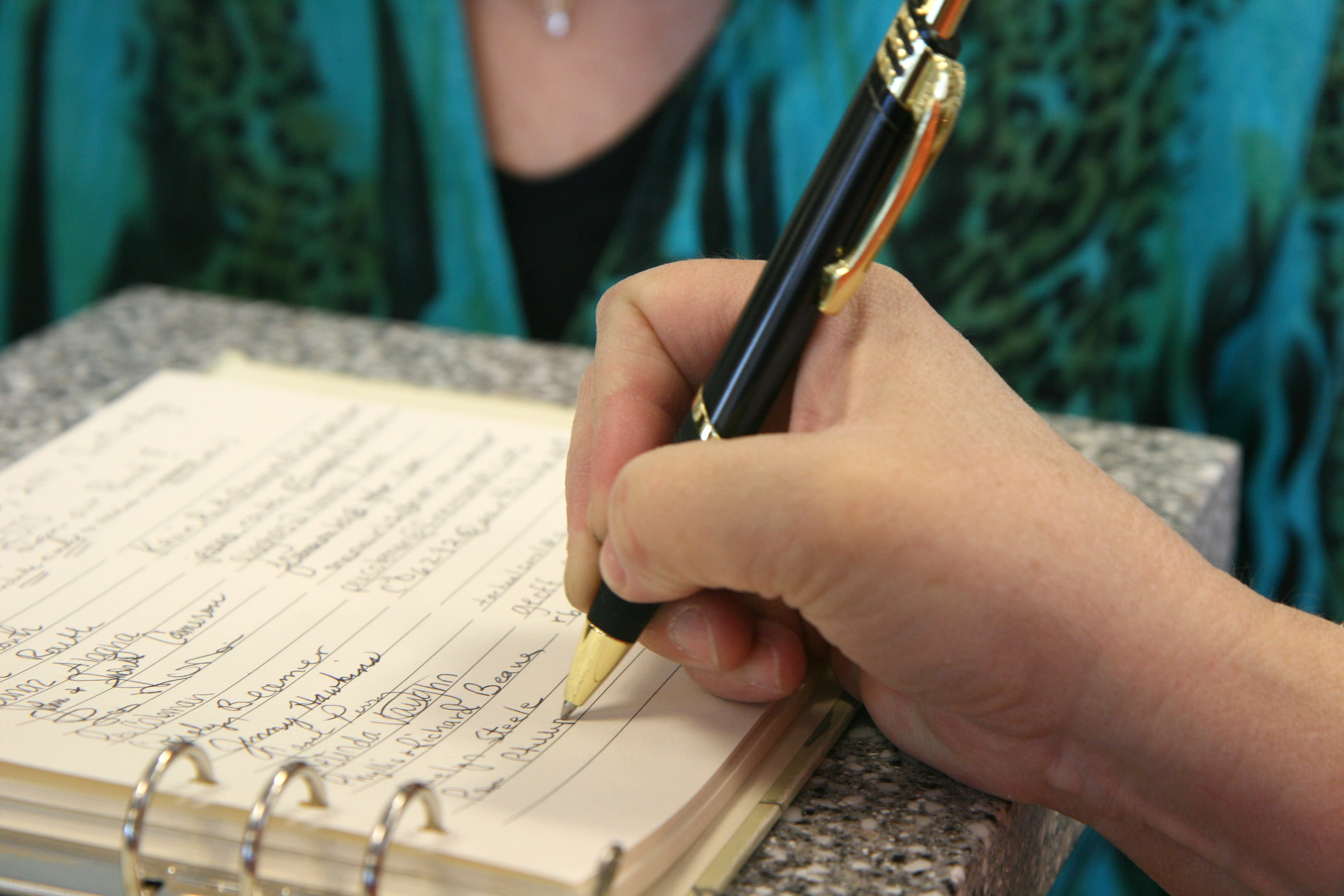 Image Source: White House Archives
Image Source: White House Archives
Whether you're attending your first funeral or your 50th, it's often an uncomfortable situation. Every family is different, and what may be protocol at one funeral may not apply to another. However, certain social guidelines are universal when it comes to funeral and memorial service etiquette.
First Rule of Funeral Service Etiquette: Be on Time
A funeral is not an event where you want to arrive fashionably late. If you do arrive late, quietly take a seat in the back for minimal disruption. If you need to leave early, sit in the back and try to get an aisle seat.
If you arrive on time and are not sure where to sit, remember that the first couple of rows usually are reserved for members of the immediate family.
What to Wear (or Not)
 Image Source: Pixabay
Image Source: Pixabay
While you don't necessarily have to wear all black to a funeral, you probably want to avoid bright, loud colors. Think understated. When in doubt, err on the conservative side.
Business casual is a safe bet. That means no flip-flops. No shorts. No sweats. No midriff tops. No super-short hemlines and no plunging necklines.
The exception to this would be if the deceased had previously requested that funeral guests wear a certain type of clothing. Some people ask friends and relatives in advance to refrain from gloom and doom, instead opting for a color-filled funeral.
A Few Words of Advice, Literally
Family members often form a receiving line to greet guests at the funeral or memorial service. When you meet family members, keep in mind that they may not know you and your relationship to the deceased. Traditional funeral etiquette dictates that you should introduce yourself, starting with your name and how you knew the deceased. Express your condolences and move on. Don't monopolize the mourners. Give others a chance to share their support.
It's Obvious, But...
It goes without saying (but we'll say it anyway) that if there's ever a time and a place to turn off your mobile device, it's at a funeral. Do so out of respect to the deceased and his/her family.
Imagine if your cell phone rang during a heartfelt eulogy. The old adage "do unto others" certainly applies here.
Photography/videotaping may be acceptable, depending on the religion. It boils down, though, to the family's wishes. Some families may want memories of the occasion, while others may prefer not to have their raw emotions captured for posterity.
Open-Casket Services
Funeral service etiquette does not require you to view the body at an open-casket service. If it will make you uncomfortable or overly emotional, then by all means keep your distance. In fact, at Jewish funerals an open casket is prohibited.
Signing the Guestbook
 Image Source: Wikimedia
Image Source: Wikimedia
You may feel inclined to write a note of condolence, but this is not the place to do so. Simply write your name and, if you wish, your relationship to the deceased.
What to Say (or Not)
When offering condolences to family and friends of the deceased, keep it simple. Acknowledge your own feelings of sadness and add a fond memory or beloved trait of the deceased.
Don't try to put yourself in the other person's shoes, as everyone deals with grief differently. For the same reason, avoid comparing the loss to something you've experienced yourself.
If the Shoe's on the Other Foot...
Most advice you'll see regarding funeral service etiquette is directed at guests. But the family of the deceased also is expected to follow social mores during this difficult time.
When preparing a eulogy, avoid any anecdotes that would cast an unfavorable light on the deceased. That doesn't mean you should avoid using humor. In fact, a little humor can ease the tension and also provide real insight into the life of the deceased. A eulogy should be from 2 to 10 minutes in length.
After the funeral, you should send thank-you notes to anyone who sent a card, gift, or flowers. If you are making a donation to a house of worship, do so separately from your thank-you note to the clergy.
Whether you're the one in mourning or you have been invited to a funeral, know that proper funeral service etiquette can also depend on the type of burial service. When in doubt, you always can reach out to the funeral home, to an extended family member or close friend of the deceased.

